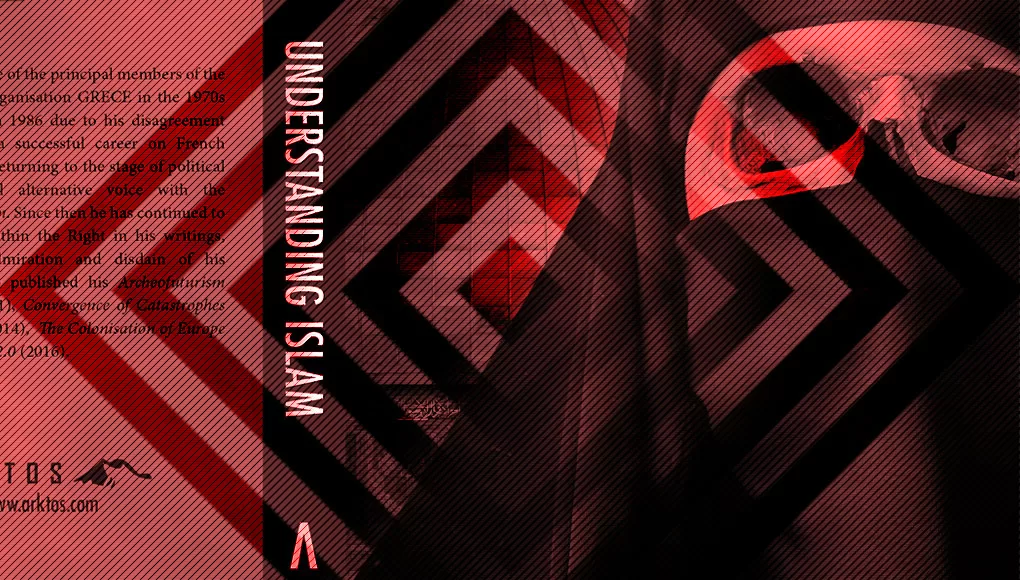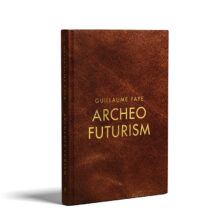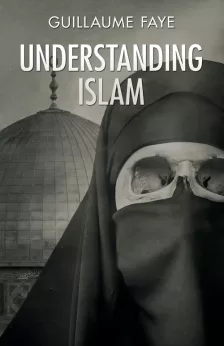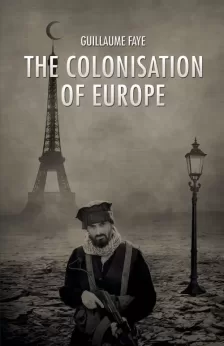From the death of Muhammad in 632 CE in Medina to the time when Charles Martel stopped the callous Muslim-Arab conquest in its tracks at Poitiers in 732 CE, the Muslims managed to take over all of Arabia, the Middle-East, Egypt, North Africa and Spain in the space of a single century, beginning in the small area of the Arabian Peninsula known as the Hejaz. In the process, they brought the Persian Empire to its knees, amputated the Byzantine Empire and erased the Visigothic kingdoms. Seldom in our entire human history has anyone seen a single people, the Arabs, conduct such a hostile conquest and thus claim such immense territories. The power of Islam accounts for this victory, especially when considering the fact that the vanquished nations often converted to the Muslim religion. In the eyes of all fundamentalist Muslims, this historic episode is a foundational miracle which has but one significance: that Allah is the one true God who grants his believers supremacy.
Later on, things were to become complicated, with the emergence of schisms and power rivalries within this all-conquering Islam. Over the centuries, periods of conquest and domination, stretching the Muslim rule all the way to Asia through highly brutal and glorious means, gave way to humiliating setbacks. The European colonialism that characterised the 19th and 20th centuries was to have the worst impact of all, far more so, in fact, than the Crusades themselves, not to mention the dismemberment of the Ottoman Empire and, at a later point, the creation of the State of Israel.
However, already in the 1920s, Islam was plotting its revenge and retaliation with the creation of the Muslim Brotherhood in Egypt. Oil revenue, demographic growth, the birth of the Shiite Islamic Republic of Iran and the Muslim migration with its flooding of Europe would come together to mix the necessary ingredients for an overwhelming renewal of the age-old Islamic aggression. The complexity in which this recommencement is shrouded should not be allowed to conceal the truth: that of an ongoing Muslim offensive.
What we are witnessing is the opening of a new chapter in the novel of human history, a chapter once thought to have ended with the Spanish Reconquista, European colonialism, the fall of the Ottoman Empire and the gradual domination of the West under American guardianship. Islam, once believed to be dead and buried, has resuscitated, its archaic power still intact. There are several new developments nowadays: the Muslims’ return to their roots (Islamism), their demographic dynamism and the powerlessness of European leaders in the face of immigration, all placing Islam at the core of history. The latter, it seems, is more cyclical than linear…
The Oracle Muhammad and His Uniqueness
Islam was born during the 7th century among the Arab Bedouin tribes, thanks to a warlord named Mohammed, a man of ingenuity or, at the very least, one whose personality was superior to that of others. He claimed to be a prophet, a messenger of God. In truth, it would be more becoming to speak of the oracle Mohammed, since he never actually ‘prophesied’ anything, restricting his role to the transmission of God’s words and laws (or so he claimed). All of this is reminiscent of the Pythia, the Oracle of Delphi, who conveyed Apollo’s wishes and predictions to the people. Many see in Mohammed an affinity with Jesus Christ, who declared himself to be the actual Son of God, the Messiah whose advent had been foretold by Jewish prophecies and who had been sent to Earth by God himself, partaking in the Trinitarian Godhead and embodying God Himself in a man born of a virgin.
Never have Judaism and Islam dared venture that far. Just like the oracle Muhammad, all the Jewish prophets since the days of Moses have always presented themselves as mere mortals whose inspiration comes from God. Jesus, on the other hand, is consubstantialis patri (consubstantial with God the Father) and immortal, having risen from the dead after his crucifixion.1 The Jewish religion, however, does not acknowledge him to be the true Messiah mentioned in its prophecies. In any case, the three monotheistic religions born out of the Middle East apparently follow the same pattern: God elects a representative, a man who leads humans towards the Truth, regardless of whether he is an inspired prophet or seer, a messiah (an emissary) who happens to be the Son of God and therefore God himself, or an oracle, namely Mohammed, chosen by God among everyone else in an Arab tribe.
Obviously, when looking at things from a pagan point of view (that of the polytheism that typified Antiquity in ancient Rome, Greece and the East, or that of the modern form of Hindu polytheism) and an agnostic standpoint (Aristotelianism and all hermeneutical philosophies), one cannot help being critical and feeling concerned that men would declare themselves to be chosen and claim to reveal God’s truth and will. The three revealed monotheistic religions are thus all tarred with the same brush and subject to the same rejection of dangerous dogmatism. Nevertheless, as we shall soon see, the differences between the first two monotheistic religions (i.e. Judaism and its self-declared successor, Christianity) and Islam are huge.
Admittedly, unlike pagan polytheism (a system devoid of Revelation, based on mythology and particularly dependent on ritualised superstitions), the above-mentioned monotheistic religions are all rooted in sacred scriptures which establish fixed dogmatic rules that appeal to people’s faith and require a mental engagement that is totally alien to both paganism and philosophical agnosticism. However, this is where their similarity ends. For the particularity of the Islamic religion, whose tenets were officially inscribed in the Koran through Muhammad the oracle, is that it separates itself radically from the Judeo-Christian doublet through its extraordinary rigidity, a rigidity that is absent among Jews and Christians. Indeed, Islam has adopted several misdirected imitations of various Judeo-Christian elements, including them in its Koran, watering them down and transforming their very meaning. Unlike Jewish and Christian texts, which require interpretation, the Koran is seen as the direct word of God (Allah), whispered in the ear of Muhammad the oracle. The incontestability and immutability of the text are therefore absolute. One may well object that in the New Testament, the words of Jesus (who is considered the Son of God and God Himself) establish absolutes that are just as rigid as those revealed by Allah to the oracle Muhammad. True enough, but there is a difference: Christ speaks in parables, which are always open to interpretation and discourse, whereas the Koran is a series of statements and rules, supposedly of divine origin, that are incontrovertible and authoritarian, tolerating neither objection nor criticism. And therein lie Islam’s totalitarian roots.
Resultantly, the power of Islam is due to its dogmatic simplicity. The oracle Muhammad has spoken, so there is nothing more to think about nor comment on: one is simply required to obey. The power of Islam is indisputable, yet it lacks any philosophical ingenuity whatsoever. Islam targets simple-minded people while simultaneously simplifying their spirits further, at the risk of rendering them childlike and flushing out every trace of critical spirit. Moreover, unlike the message of Christ, who preached harmony, the commandments of Allah reported by his oracle and organised into Suras contain an implied intolerance, fraught with numerous appeals to murder and constant references to punishment should one fail to submit. Hence a fact that we will return to later, namely that Islam is, by nature, fundamentally anti-Jewish and anti-Christian (in its sacred texts), but equally ruthless towards anything and everything that conflicts with it. By contrast, Judaism and Christianity are not anti-Muslim in any way, and neither are the other faiths or philosophies embraced by the rest of mankind.
It should also be noted that, as a result of the absoluteness of Muhammad’s decrees, both traditional Muslim countries and those conquered by Islam experience less wellbeing, prosperity and peace than anyone else, a fact that applies as much today as it did in the past. They wallow in disorder, poverty and war (the only exception being the oil monarchies of the Gulf, which act as temporary bunkers). In anticipation of Allah’s post mortem Paradise, the general rule is that all zones which fall under Muslim dominion are plagued by internal chaos or permanent tensions and that Islam is in itself a source of threats and confrontation, wherever it becomes established. Why is that, I wonder…
Muhammad — a Manipulative and Ingenious Dictator?
Unlike ordinary people who display sufficient common sense to view Islam as an aggressive, conquering and intolerant religion, the European elites regurgitate, for reasons of hypocritical political calculation, that Islam is a peaceful religion resembling Christianity. They know very little about the subject. Christianity itself has not always been a religion of peace, far from it actually, but Islam is even less so.2 For if the internal and external wars waged in the name of Christianity were conducted in spite of Christ’s words, the wars and acts of violence carried out in the name of Islam have been in agreement with the words and deeds of the oracle Muhammad.
The founder of Islam, Muhammad, was by no means a bleeding heart. This young, illiterate camel driver from Mecca married his mistress, Khadija, a rich merchant who was fifteen years his senior. This situation of economic comfort allowed him to meditate in the desert, where he claimed to have met the Archangel Djibril (Gabriel), the one who transmitted the word of God (i.e. the Koran / Qur’an) directly to him. At this point already, there are several strange things to be noted. First of all, this constitutes a deviation from strict monotheism (whose only examples are the solar forms of paganism), since this archangel is indeed a supernatural being, a demigod as pagans say. What an embarrassing contradiction. On the other hand, the Archangel Gabriel, a being inspired directly from the Jewish Bible (and, in all likelihood, from pre-Islamic Arab polytheism as well), is the very same one who, in the Christian narrative, announces to the Virgin Mary that she will conceive the child Jesus. This explains the fact that the Muslim tradition claims to be the successor of Judaism and Christianity, one that amends them both. For Muslim theologians, Christianity was mistaken in its belief that the Archangel Gabriel had announced the birth of the Son of God, when, in actual fact, he had merely proclaimed the coming of a prophet, Christ, whose role was as temporary as that of all Judaic prophets and whose words were to be replaced by the teachings of the ultimate true prophet (or oracle), namely Muhammad.
As the sole authentic custodian of the divine word through the intercession of the Archangel, Muhammad begins to preach a new religion. This is ‘Islam’, meaning submission (to God, of course, but also to Muhammad himself, who claims to be God’s messenger and spokesman). His orations achieve some success among the poor and destitute, but are rejected by Arab dignitaries as cock-and-bull stories. When Khadija dies, he is expelled from Mecca and departs in order to take refuge in Medina, accompanied by his followers. This marks the beginning of the Hegira, i.e. the start of the Muslim calendar count. In Medina, Muhammad sets out to conspire between rival clans, imposing himself first as an intermediary and referee and then as a leader thanks to his powerful personality and charisma. He becomes the ringleader of a gang that indulges in raids and the looting of caravans, while still continuing to preach. He murders his opponents, those who criticise him openly and the ones that are too moderate, using ruse (taqiya, a fundamental notion that is revered and considered positive in Islam) and breaching every single truce he signs.
Furthermore, he does not hesitate to award himself several women (including Aisha, then 6 years old and deflowered at the age of 9), in addition to concubines and slaves. He justifies his outrageous behaviour through various verses of the Koran that he recites continually and in a most timely manner, verses that represent the indisputable words of God revealed exclusively to him by the Archangel during his stay in the desert. Muhammad then attempts to rally neighbouring Jewish tribes behind his politico-religious cause. All in vain: they refuse. He therefore proceeds to exterminate them. Then, after successfully conquering Mecca (where he was once persecuted) and exhorting his faithful fanatics to attack surrounding nations and the rest of the world, he dies unexpectedly, without having appointed a successor (i.e. a new politico-religious war chief). A political crisis thus erupts between two factions: the Sunnis (the companions of Muhammad, claiming to have the right to succeed him) and the Shiites (those who sided with his cousin and son-in-law Ali and supported him). A deadly conflict ensues. Despite these hostilities, a common foundation subsists: the Koran. That is to say, the teachings and divine directives supposedly received by Muhammad, whose sacred authority neither of the two hostile camps questions.
One thus sees that since the very beginning, Muhammad’s behaviour, which is set as an example for all Muslims to follow, has had no peaceful aspect whatsoever and has been the complete opposite of the ‘righteousness’ that characterises the values of Greco-Roman philosophy and European Christianity. Unlike Jesus Christ who, declaring himself Theou uios soter (Son of God and Saviour), never strived to interfere in politics or war, rejected any and all personal benefits, did not plot to have anyone assassinated, preached love and forgiveness and confined himself to the spiritual sphere, Muhammad, the founder of Islam, sets a completely different example with his conduct. He is a religious preacher, God’s sole spokesman, a political conspirator, a brutal warrior and a monocratic leader whose actions are not be restricted in any way, all in one person. It is Muhammad’s personality that was to have a profound impact on Islam, a religion that adopted him as its supreme model. It also accounts for two further facts: firstly, the complete fusion of religion and politics (as well as the merger of faith and law), and secondly, the justification of a cynical and uncompromising morality in the expansion of Islam, with the prevalence of a dictatorial leader legitimised by a rigid ideology and surrounded by a caste of willing accomplices.
Therein lies the very root of Islamic politico-religious totalitarianism. In addition, by practicing treachery as an example to follow (‘the end justifies the means’), Muhammad has instilled into Islam a power rooted in justified lies, a legitimated double discourse and the breaking of promises. But what he has also endowed it with is an extraordinary strength, a strong-willed, conquering and aggressive power that the Bedouin tribes of Arabia had lacked thus far. Does the doctrine of Mohammed express the deepest Arab mentality, a mentality that represents its infrastructure? Or is it the case, quite to the contrary, that the doctrine professed by the ingenious Muhammad has failed to influence the mentality of the Arabs and that of all the other peoples who converted to Islam? Let anthropologists decide on the answer to these questions.
Defying all those pseudo-secular Islamophiles terrorised by Islam, I would dare to argue that Muhammad is either an impostor or a mystic who convinced himself of his own miraculous encounter with the archangel Gabriel. Or, indeed, perhaps both. The Koran, the divine word that he supposedly heard and passed on, was nothing short of pure invention on his part (one that was later improved upon by his successors) in order to establish and consolidate his own power in accordance with his own interests and exalted desire for conquest. I personally favour the hypothesis that Mohammed was either an absolute atheist or a pretentious man who ended up believing in his own delusions. He invented his own god, a schizophrenic projection of himself. And it worked.
References
1 According to tradition, the inscription INRI, imposed by both the Roman imperial authorities and the Great Sanhedrin, was nailed to the top of Christ’s Cross. It stood for the Latin acronym Iesus Nazarenus Rex Iudaeorum, meaning ‘Jesus of Nazareth, King of the Jews’. The aim was to state, sarcastically and controversially, that Christ was a politico-religious agitator who, far from being the Son of God, wanted to rebuild Solomon’s kingdom by triggering a schism in his own favour. This disorder displeased both Tiberius’ Roman and pagan Empire and the Jewish authorities. Consequently, Christians responded by adopting the schematised fish symbol known in Greek as Ichthys (and not the Cross, which was used later on). Ichthys stands for Iesous Christos Theou Yios Soter or ‘Jesus Christ, Son of God and Saviour’.
2 In his famous essay entitled Treatise on Tolerance (1763) and focusing on the Calas affair (1762), Voltaire remarked that Jews and Christians enjoyed better treatment in the (Muslim) Ottoman Empire than the Protestants ever did at the hands of the French Catholic monarchy during the 18th century. Historians had better verify this statement.











